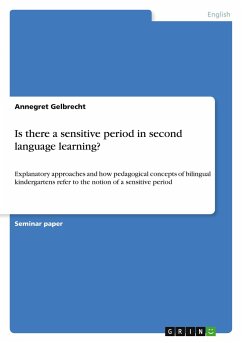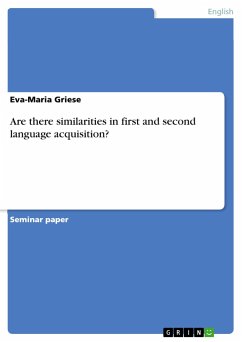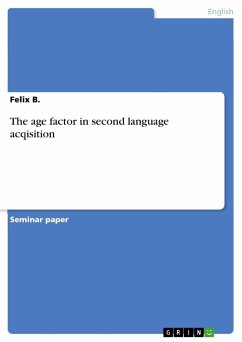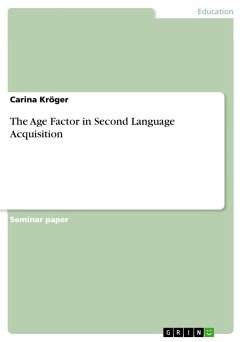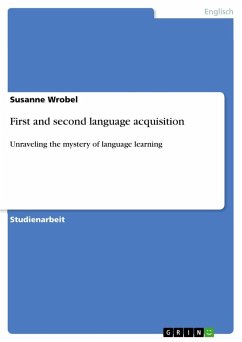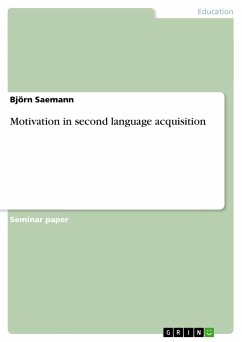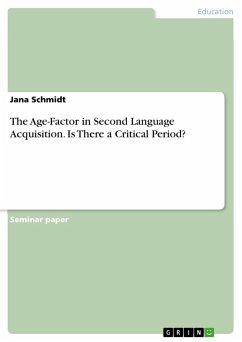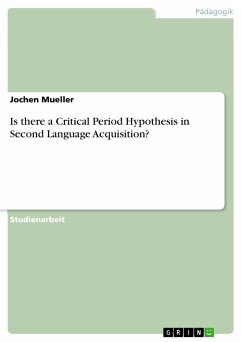Seminar paper from the year 2011 in the subject English Language and Literature Studies - Linguistics, grade: 1,0, University of Erfurt (Philosophische Fakultät - Fachbereich Anglistik), course: Second Language Acquisition, language: English, abstract: 'A tree must be bent while it is young.' (Proverb)Proverbs usually have an element of truth. The German speakers will certainly also know the German equivalent 'Was Hänschen nicht lernt, lernt Hans nimmermehr.' Do these proverbs also apply to the acquisition of a second language? Are young learners trees that 'must be bent' before they are too old to reach a certain language proficiency? In first and second language research, the concept of a 'critical period' respectively of a 'sensitive period' was developed to explain probable advantages of children in the process of language acquisition. The aim of this term paper is to find out whether there is a sensitive period for second language learning and to explore possible explanatoryapproaches.Within this research, the 'Critical Period Hypothesis' (CPH) represents the major focus. According to this hypothesis, "there is a period during which language acquisition is easy and complete (i.e. native-speaker ability is achieved) and beyond which it is difficult and typically incomplete" (ELLIS, 1997: 67). This means, it is assumed that language learners must begin at an early age to learn a language in order to reach native-like proficiency. Generally, empirical data from course books, handbook articles and journal articles as well as commentaries by different authors are used in order to follow the research question up. First, a framework concerning the origins of the idea of a sensitive period from first language acquisition, and the clarification of particular terms will be created. Then, the distinction between possible advantages of young learners in natural as well as instructional settings will be of interest.The findings on a critical or sensitive period have also found their ways into the pedagogical practice. It is obvious that especially bilingual kindergartens, that promote an early start in language learning in general, will somehow refer to the idea of a sensitive period in second language acquisition. Therefore, the second part of this term paper will present an analysis of pedagogical concepts of these kinds of day care institutions with respect to the integration of this idea. Website information of different bilingual kindergartens will serve as sources.
Bitte wählen Sie Ihr Anliegen aus.
Rechnungen
Retourenschein anfordern
Bestellstatus
Storno

